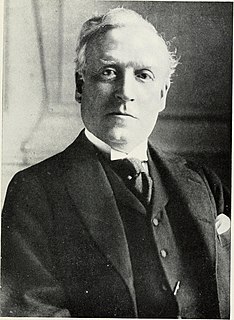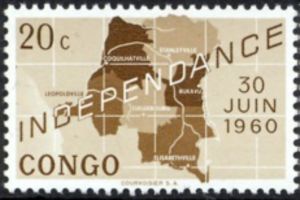
Oxford University Press (OUP) is the largest university press in the world, and the second oldest after Cambridge University Press. It is a department of the University of Oxford and is governed by a group of 15 academics appointed by the vice-chancellor known as the delegates of the press. They are headed by the secretary to the delegates, who serves as OUP's chief executive and as its major representative on other university bodies. Oxford University has used a similar system to oversee OUP since the 17th century. The Press is located on Walton Street, opposite Somerville College, in the suburb Jericho.

The Ulster Unionist Party (UUP) is a unionist political party in Northern Ireland. Having gathered support in Northern Ireland during the late-nineteenth and early-twentieth centuries, the party governed Northern Ireland between 1921 and 1972. It was supported by most unionist voters throughout the conflict known as the Troubles, during which time it was often referred to as the Official Unionist Party (OUP). Between 1905 and 1972 its MPs took the Conservative whip at Westminster, considered as part of the Conservative Party.
The Liberal Unionist Party was a British political party that was formed in 1886 by a faction that broke away from the Liberal Party. Led by Lord Hartington and Joseph Chamberlain, the party formed a political alliance with the Conservative Party in opposition to Irish Home Rule. The two parties formed the ten-year-long coalition Unionist Government 1895–1905 but kept separate political funds and their own party organisations until a complete merger between the Liberal Unionist and the Conservative parties was agreed to in May 1912.

Unionism in Ireland is a political ideology that favours the continuation of political union between the islands of Ireland and Great Britain. Since the partition of Ireland, unionism in Ireland has focused on maintaining and preserving the place of Northern Ireland within the United Kingdom. In this context, a distinction may be made between the unionism in the province of Ulster and unionism elsewhere in Ireland.
The Sunningdale Agreement was an attempt to establish a power-sharing Northern Ireland Executive and a cross-border Council of Ireland. The Agreement was signed at Sunningdale Park located in Sunningdale, Berkshire, on 9 December 1973. Unionist opposition, violence and a loyalist general strike caused the collapse of the Agreement in May 1974.

The January 1910 United Kingdom general election was held from 15 January to 10 February 1910. The government called the election in the midst of a constitutional crisis caused by the rejection of the People's Budget by the Conservative-dominated House of Lords, in order to get a mandate to pass the budget.

The 1892 United Kingdom general election was held from 4 July to 26 July 1892. It saw the Conservatives, led by Lord Salisbury, win the greatest number of seats, but not enough for an overall majority as William Ewart Gladstone's Liberals won many more seats than in the 1886 general election. The Liberal Unionists who had previously supported the Conservative government saw their vote and seat numbers go down.

The Constitutional Union Party was a United States third party active during the 1860 elections. It consisted of conservative former Whigs, largely from the Southern United States, who wanted to avoid secession over the slavery issue and refused to join either the Republican Party or the Democratic Party. The Constitutional Union Party campaigned on a simple platform "to recognize no political principle other than the Constitution of the country, the Union of the states, and the Enforcement of the Laws".
The Irish Unionist Alliance (IUA), also known as the Irish Unionist Party or simply the Unionists, was a unionist political party founded in Ireland in 1891 from the Irish Loyal and Patriotic Union to oppose plans for home rule for Ireland within the United Kingdom of Great Britain and Ireland. The party was led for much of its existence by Colonel Edward James Saunderson and later by William St John Brodrick, Earl of Midleton. In total, eighty-six members of the House of Lords affiliated themselves with the Irish Unionist Alliance, although its broader membership was relatively small.

Lieutenant-Colonel Sir Malik Khizar Hayat TiwanaKCSI, OBE was a Punjabi statesman, army officer, and landowner who served as the Unionist Premier of the Punjab between 1942 and 1947.
The Unionist Party was a political party based in the Punjab Province during the period of British rule in India. The Unionist Party mainly represented the interests of the landed gentry and landlords of Punjab, which included Muslims, Hindus and Sikhs. The Unionists dominated the political scene in Punjab from World War I to the independence of India and Pakistan in 1947. The party's leaders served as Prime Minister of the Punjab.
The Irish Conservative Party, often called the Irish Tories, was one of the dominant Irish political parties in Ireland in the 19th century. It was affiliated with the Conservative Party in Great Britain. Throughout much of the century it and the Irish Liberal Party battled for electoral dominance among Ireland's small electorate within the United Kingdom of Great Britain and Ireland, with various parties such as the movements of Daniel O'Connell and later the Independent Irish Party relegated into third place. The Irish Conservatives became the principal element of the Irish Unionist Alliance following the alliance's foundation in 1891.
The Horncastle by-election of 1920 was a parliamentary by-election held for the British House of Commons constituency of Horncastle in Lincolnshire on 25 February 1920. The seat had become vacant when the sitting Coalition Unionist Member of Parliament, William Weigall, who had held the seat since 1911, resigned upon being appointed Governor of South Australia.

Sir Ronald Wilberforce Allen was an English lawyer and Liberal politician.

Christophe Gbenye was a Congolese politician, trade unionist, and rebel who, along with Pierre Mulele and Gaston Soumialot, led the Simba Rebellion, an anti-government insurrection in the Democratic Republic of the Congo during the Congo Crisis, between 1964 and 1965.

Sir Joseph Walton, 1st Baronet, DL, JP was an English coalowner and Liberal Party politician.
The Stockton-on-Tees by-election, 1917 was a parliamentary by-election held for the House of Commons constituency of Stockton-on-Tees in County Durham on 20 March 1917.
Sir Humphrey Sumner Milford was an English publisher and editor who from 1913 to 1945 was publisher to the University of Oxford and head of the London operations of Oxford University Press (OUP).
The West Derbyshire by-election, 1900 was a parliamentary by-election held for the House of Commons of the United Kingdom constituency of West Derbyshire on 11 December 1900.









